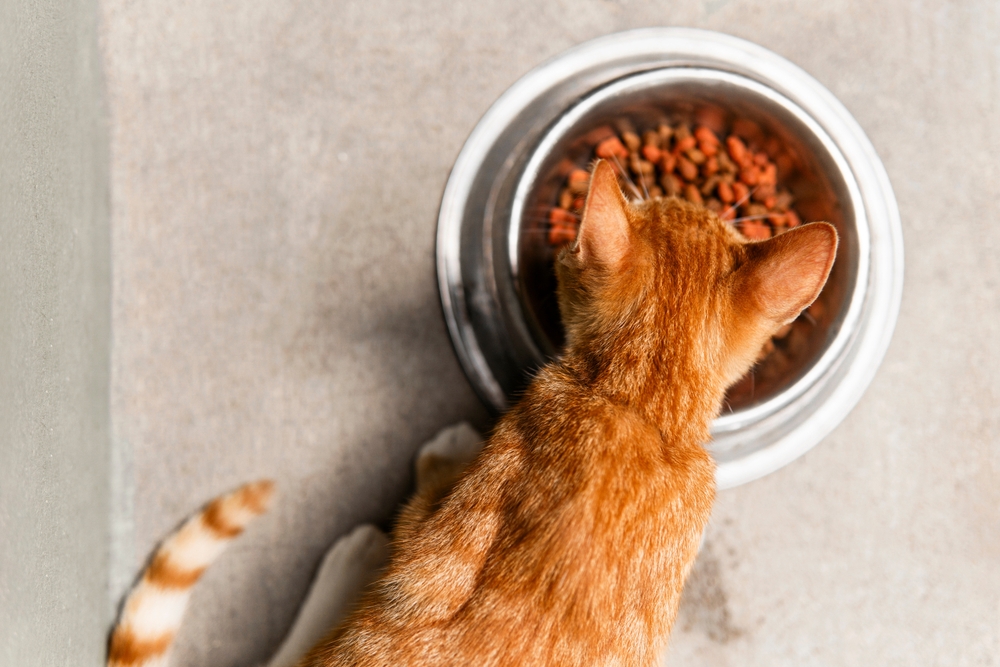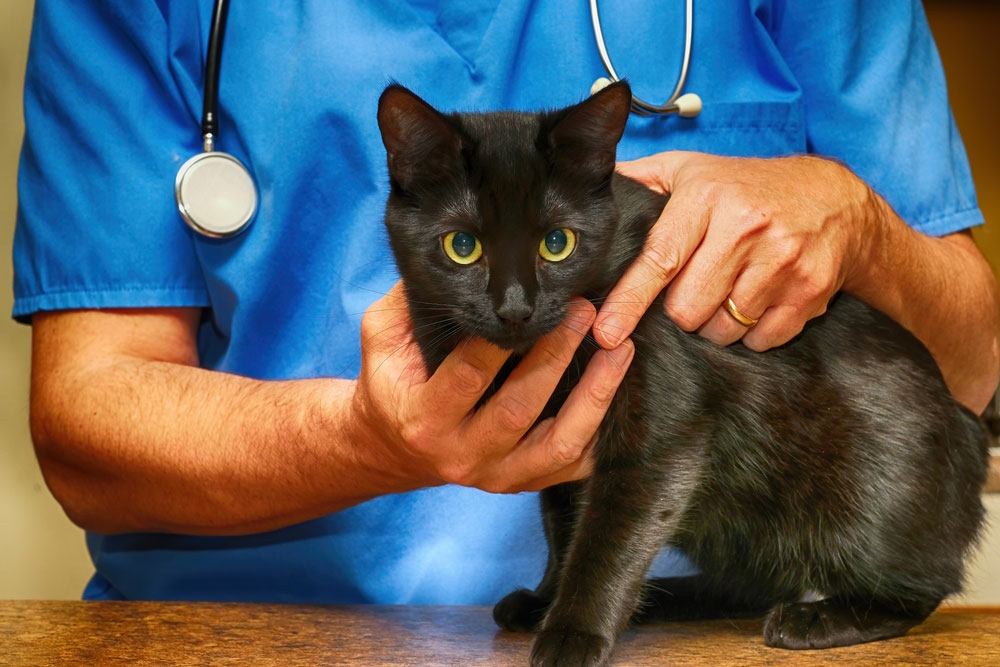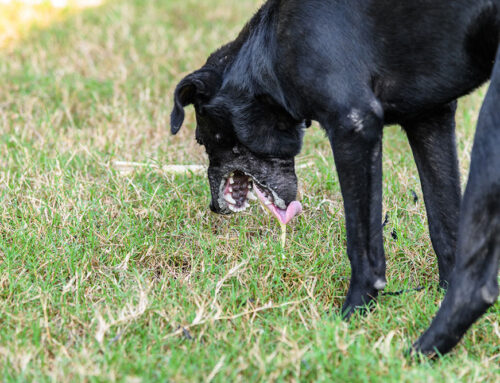Pancreatitis in Cats: Why Prompt Care Can Save a Life
Cats are subtle communicators. A skipped meal, a quiet day on the couch, or a single episode of vomiting might not seem like a big deal. But for cats, these small changes can point to serious illness. One condition that often hides behind vague signs is pancreatitis, or inflammation of the pancreas.
At Peak Pet Urgent Care in Reno, Nevada, we regularly see cats with pancreatitis. Because this disease can escalate quickly into a life-threatening situation, urgent evaluation is essential. Some cats recover with same-day care and at-home support, while others require hospitalization to manage severe dehydration, pain, or complications. Understanding what to watch for, and when to seek help, can save your cat’s life.
What Pancreatitis Means for Cats
The pancreas has two important jobs: producing digestive enzymes to process food and regulating insulin for blood sugar control. When it becomes inflamed, these enzymes leak into surrounding tissues, causing pain and damage. Since the pancreas connects to so many body systems, pancreatitis does not just affect digestion. It can trigger cascading effects throughout the body.
Feline pancreatitis is often underdiagnosed because the signs are vague. Without prompt treatment, however, the consequences can be severe.
Why Cats Develop Pancreatitis
Pinpointing a single cause is often impossible. Instead, veterinarians look at risk factors:
- Cats with inflammatory bowel disease (IBD) frequently experience pancreatic inflammation at the same time.
- Conditions such as diabetes and liver disease increase vulnerability.
- Trauma, infection, or metabolic disease may play a role.
- Nutrition matters. Cats who receive sudden diet changes or inappropriate table foods are more likely to develop gastrointestinal upset, which can trigger inflammation.
Some cats also suffer from triaditis, a condition where pancreatitis, IBD, and liver disease occur together. This requires careful management of all three conditions to prevent repeated flare-ups.
Signs Owners Should Never Ignore
Cats are experts at masking discomfort, so symptoms are often subtle. Pay close attention to changes in:
- Energy levels. A cat that hides, moves stiffly, or seems unusually tired may be lethargic.
- Skipping more than one meal is never normal. Ongoing refusal to eat is a red flag.
- Digestive health. Vomiting is one of the most common indicators of pancreatitis, and diarrhea may also appear.
- Comfort. Cats with abdominal pain often avoid being picked up or curl tightly when resting.
- Hydration. Dehydration from vomiting or reduced intake is common and dangerous.
If you notice more than one of these signs, or if your cat refuses food for more than 24 hours, it is time for an urgent evaluation.
Why Pancreatitis Is Urgent
Unlike some conditions that can wait for a routine veterinary appointment, pancreatitis can spiral rapidly. In severe cases, inflammation leads to:
- Severe dehydration that requires IV fluids.
- Secondary liver disease such as hepatic lipidosis.
- Diabetes, triggered by pancreatic damage.
- Life-threatening sepsis if infection spreads.
Some cats recover with fluids, pain relief, and anti-nausea medication provided during an urgent care visit. Others require hospitalization for round-the-clock monitoring, assisted feeding, and advanced supportive care. Quick action is the difference between a manageable illness and a critical emergency.
How Pancreatitis Is Diagnosed
Since symptoms overlap with many other feline illnesses, diagnostic testing is essential. During your cat’s visit, our veterinarians may recommend:
- Bloodwork to measure pancreatic enzymes, hydration, and organ function.
- Ultrasound or X-rays to visualize the pancreas and surrounding organs.
- Additional lab tests to rule out related conditions.
With our in-house laboratory and imaging tools, results are often available the same day, helping us create a treatment plan quickly. Learn more about what to expect during your visit here.
Treatment: What Owners Can Expect
In-clinic care
Cats with pancreatitis almost always need supportive therapy to stabilize them and relieve discomfort. Treatment is tailored to the severity of illness but often includes several components:
- IV or subcutaneous fluids restore hydration, correct electrolyte imbalances, and support circulation. Dehydration is one of the most immediate dangers of pancreatitis, and fluids often make cats feel better within hours.
- Pain management is essential. Pancreatic inflammation is painful, and without adequate pain relief, cats may refuse food or water. Medications are chosen carefully for safety and effectiveness.
- Anti-nausea drugs help control vomiting and reduce nausea, which encourages cats to eat and recover faster.
- Appetite stimulants may be given if nausea is controlled but the cat still refuses food.
- Nutritional support is critical. Cats that do not eat for even a few days are at risk for secondary liver disease. Assisted feeding, syringe feeding, or temporary feeding tubes may be used to ensure they receive the calories they need.
Our urgent care team focuses on stabilization and clear communication. Once your cat is safe to go home, we provide detailed discharge instructions and send records to your family veterinarian for seamless follow-up. In more complex cases, we coordinate with specialty hospitals if advanced hospitalization or long-term monitoring is required.
Preventing Pancreatitis
Not all cases of pancreatitis can be prevented, but proactive care reduces risk.
- Feed a consistent, balanced diet formulated for cats.
- Avoid feeding fatty table scraps or high-risk human foods. Cats that beg at mealtime should be offered safe alternatives, such as options from this list of pet-safe treats.
- Maintain a healthy weight. Overweight cats are significantly more prone to pancreatitis.
Small steps at home, combined with early veterinary care, give your cat the best chance of avoiding this painful condition.

FAQs About Feline Pancreatitis
Can my cat get pancreatitis again? Yes. Flare-ups are common, especially if underlying issues are not managed.
Is it contagious? No. Pancreatitis does not spread between cats or to humans.
How long is recovery? Mild cases may improve within days, while severe cases can take weeks and require hospitalization.
What should my cat eat? A veterinarian will recommend a bland, easily digestible diet. Avoid sudden food changes, which can make recovery harder.
Urgent Care for Cats in Reno
Pancreatitis is more than an upset stomach. It is a painful, potentially life-threatening condition that requires urgent veterinary attention. At Peak Pet Urgent Care, we triage cats quickly, provide same-day stabilization, and coordinate advanced care if hospitalization is required.
If your cat is vomiting, refusing food, or acting unusually quiet, do not wait. Contact us today or head to our urgent care clinic. With timely treatment, many cats recover fully and return to the comfort of home.







Leave A Comment